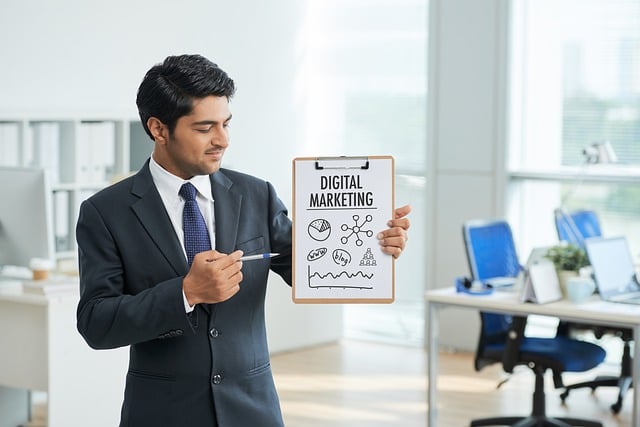January 30, 2023 Imphal By Banti Phurailatpam:
Contents
- 1 Introduction:
- 2 I. Understanding the Digital Marketing Landscape:
- 3 II. The Role of Digital Marketing Agencies:
- 4 III. The Collaborative Agency Model:
- 5 IV. Overcoming Challenges in the Digital Space:
- 6 V. Future Trends in Digital Marketing:
- 7 VI. Harnessing Influencer Marketing:
- 8 VII. Embracing Ephemeral Content:
- 9 VIII. Mobile-First Strategies:
- 10 IX. Sustainable and Purpose-Driven Marketing:
- 11 X. Globalization and Multilingual Marketing:
- 12 XI. Artificial Intelligence (AI) in Marketing Automation:
- 13 XII. Continuous Learning and Adaptation:
- 14 XIII. The Synergy of Offline and Online Marketing:
- 15 XIV. Conclusion:
Introduction:
In the ever-evolving landscape of the digital realm, businesses are constantly seeking innovative ways to reach their target audience, enhance brand visibility, and drive conversions. Amidst this dynamic environment, the role of a digital marketing agency becomes paramount. A well-equipped agency not only understands the intricacies of the digital space but also crafts tailored strategies to propel businesses to new heights. In this comprehensive exploration, we delve into the world of digital marketing agencies, uncovering the key components that make them indispensable in today’s competitive business landscape.
I. Understanding the Digital Marketing Landscape:
The Evolution of Digital Marketing:
Pursuing the shift from traditional to digital marketing.
The rise of web search engines, online entertainment, and adaptable platforms.
Current Trends Shaping Digital Marketing:
The impact of AI and machine learning.
Video marketing and the popularity of short-form content.
The significance of personalized and interactive experiences.
II. The Role of Digital Marketing Agencies:
Strategic Planning and Market Analysis:
Conducting comprehensive market research to identify target audiences.
Crafting data-driven strategies aligned with business objectives.
Creative Content Development:
The art of storytelling in digital marketing.
Leveraging multimedia content for maximum engagement.
Search Engine Optimization (SEO):
The value of SEO in increasing one’s internet presence.
Strategies for optimizing content and website structure.
Social Media Management:
Building a strong social media presence across platforms.
The role of social listening in shaping marketing strategies.
Paid Advertising Campaigns:
The intricacies of running successful PPC campaigns.
Maximizing ROI through targeted advertising.
Analytics and Data-Driven Insights:
Utilizing analytics tools to measure campaign performance.
Iterative improvement based on data insights.
III. The Collaborative Agency Model:
Client-Agency Collaboration:
The importance of a collaborative approach.
Regular communication and feedback loops.
Tailoring Strategies for Different Industries:
Adapting marketing strategies to suit the unique needs of diverse industries.
Case studies illustrating successful industry-specific campaigns.
IV. Overcoming Challenges in the Digital Space:
Navigating Rapid Technological Changes:
Staying ahead in the face of evolving technologies.
Embracing innovation for sustained success.
Ensuring Data Privacy and Security:
Addressing concerns regarding data privacy.
Setting serious areas of strength for up measures to protect client information.
V. Future Trends in Digital Marketing:
The Rise of Voice Search:
Understanding the impact of voice-activated devices on search behavior.
Adapting content strategies for voice search optimization.
Augmented Reality (AR) and Virtual Reality (VR):
Exploring the potential of AR and VR in marketing campaigns.
Real-world examples of successful AR and VR marketing initiatives.
VI. Harnessing Influencer Marketing:
The Impact of Influencers in the Digital Space:
Recognizing how influencers affect how consumers behave.
Building authentic partnerships for effective influencer marketing.
Micro-Influencers and Niche Markets:
Exploring the benefits of micro-influencers in niche industries.
Strategies for identifying and collaborating with influencers aligned with brand values.
VII. Embracing Ephemeral Content:
The Popularity of Ephemeral Content:
Examining the rise of temporary, disappearing content on platforms like Instagram and Snapchat.
Utilizing the FOMO (Fear of Missing Out) factor in marketing strategies.
Storytelling through Stories:
Crafting compelling narratives through short-lived content.
Encouraging audience engagement and participation through interactive features.
VIII. Mobile-First Strategies:
The Dominance of Mobile Devices:
Understanding the shift in user behavior towards mobile usage.
Optimizing websites, content, and campaigns for a seamless mobile experience.
Mobile App Marketing:
The role of mobile apps in enhancing user engagement.
Strategies for effective app marketing and user retention.
IX. Sustainable and Purpose-Driven Marketing:
The Rise of Conscious Consumerism:
Consumers’ increasing preference for socially responsible brands.
Integrating sustainability and purpose-driven initiatives into marketing campaigns.
Corporate Social Responsibility (CSR) in Digital Marketing:
Showcasing brand values through CSR initiatives.
Enhancing brand perception through community service.
X. Globalization and Multilingual Marketing:
Expanding Reach through Multilingual Content:
The importance of adapting content for diverse linguistic audiences.
Strategies for effective multilingual SEO and content localization.
Navigating Cultural Sensitivities:
Understanding cultural nuances to avoid misinterpretations in global campaigns.
Leveraging cultural insights for targeted and resonant marketing.
XI. Artificial Intelligence (AI) in Marketing Automation:
Revolutionizing Marketing with AI:
The role of AI in automating routine tasks and decision-making processes.
Implementing AI-driven chatbots for enhanced customer interaction.
Predictive Analytics for Personalization:
Utilizing predictive analytics to anticipate customer preferences.
Delivering personalized content and recommendations for improved user experience.
XII. Continuous Learning and Adaptation:
The Agile Approach in Digital Marketing:
Embracing an agile mindset for quick adaptation to changes.
The significance of nonstop learning in a quickly developing computerized scene.
Professional Development in the Digital Age:
Training and upskilling digital marketing professionals.
The role of certifications and staying updated on industry best practices.
XIII. The Synergy of Offline and Online Marketing:
Integrating Offline and Online Strategies:
Creating a cohesive brand experience across online and offline channels.
Strategies for bridging the gap between physical and digital marketing efforts.
Measuring Cross-Channel Attribution:
Overcoming challenges in attributing success across multiple channels.
Implementing tools and methodologies for accurate cross-channel measurement.
XIV. Conclusion:
In a world where digital marketing is constantly evolving, agencies must remain adaptable and innovative. By harnessing the power of influencer marketing, ephemeral content, mobile-first strategies, sustainability, and AI, digital marketing agencies can stay ahead of the curve. Globalization, cultural sensitivity, and the integration of offline and online strategies are vital for a holistic approach. As the digital landscape continues to expand, agencies that emphasize continuous learning and collaboration will not only survive but thrive in this ever-changing ecosystem. The future of digital marketing agencies lies in their ability to blend creativity, technology, and strategy to drive results that transcend the boundaries of the digital realm.





